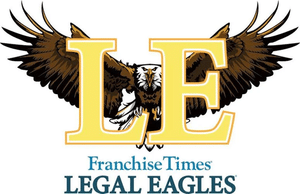What You Need to Know About Franchising
The Pilgrims landed at Plymouth Rock in what is now the beautiful Commonwealth of Massachusetts…is it so surprising that franchise companies also want to put down roots there? Massachusetts is a non-registration state, which means franchisors do not have to register a franchise prior to selling them there.
While Massachusetts’ lack of franchising regulations means less red tape (and is one of the appealing reasons so many franchisors choose to sell franchises here), franchisors are still beholden to the regulations set by the Federal Trade Commission regarding the franchise disclosure document (FDD).
Understanding Franchise Registration in Massachusetts: What Franchisors & Franchisees Need to Know
Massachusetts requires franchisors to register their Franchise Disclosure Document (FDD) with the state before offering franchises. This requirement ensures compliance with state regulations and protects potential franchisees.
Key Legal Considerations for Franchisors Operating in Massachusetts
Franchisors in Massachusetts should be mindful of several critical legal factors:
- Registration Obligations: Ensure your FDD is properly registered with the Massachusetts Office of Consumer Affairs and Business Regulation.
- State Regulations: Familiarize yourself with Massachusetts business laws that may influence franchise operations.
- Financial Transparency Requirements: Providing accurate financial information is essential for potential franchisees to clearly understand the business opportunity.
The Role of Legal Professionals in Crafting Franchise Agreements
Engaging legal professionals during the franchise agreement process is crucial for various reasons:
- Ensuring Compliance: Following both state and federal regulations helps avoid legal pitfalls.
- Effective Negotiation Tactics: Safeguard your interests through skilled negotiation and resolution practices.
- Intellectual Property Safeguarding: Ensure your brand, trademarks, and proprietary information remain protected from infringement.
Choosing the Right Franchise Attorney in Massachusetts: Key Factors
When selecting legal representation, consider these vital elements:
- Experience in Franchise Matters: Look for attorneys with a strong background in franchise law.
- Client Testimonials: Positive feedback can provide insight into an attorney’s reliability and effectiveness.
- Communication Style: Choose an attorney who communicates clearly and responds to your needs.
Benefits of Partnering with a Franchise Lawyer for Your Business
Working with an experienced franchise attorney can offer numerous advantages, including:
- Minimizing Legal Risks: Operate within established legal frameworks to limit liability.
- Ongoing Compliance Assurance: Stay updated on changing laws that may impact your franchise operations.
- Protection of Brand Assets: Ensure that your intellectual property rights are enforced effectively.
Frequently Asked Questions About Franchising in Massachusetts
What Are the Financial Implications of Hiring a Franchise Attorney?
Costs may vary based on the complexity of your situation. Our CORE program offers flat fee structures for ongoing legal support.
What Is the Timeline for Drafting a Franchise Agreement?
While timelines can differ, our efficient approach aims to meet your business deadlines effectively.
Can a Franchise Lawyer Assist With Business Expansion?
Yes! We provide strategic guidance on growth while ensuring compliance with applicable laws.
What Legal Challenges Should Franchisors Anticipate?
Be aware of potential issues related to FTC compliance, financial disclosures, advertising regulations, and the accuracy of your FDD.
Explore Spadea Lignana’s Flat Fee Program for Franchisors: Cost-Effective Legal Solutions
Our CORE program delivers affordable solutions for ongoing legal needs, including FDD updates, state registrations, and franchise agreement execution. We utilize a cloud-based system for efficient management at competitive flat fees billed monthly.
Begin Your Franchising Journey Today: Schedule a Free Consultation!
For more insights or to start your franchising journey in Massachusetts, contact Spadea Lignana to schedule your consultation.
Massachusetts franchises put $12 billion back into the state’s economy.
(FranchiseEconomy.com)
Donut franchises are the most popular, making up 15.6% of all franchise units.
(Franchise.org)
There are 12.5k franchises in Massachusetts.
(FranchiseEconomy.com)

Flat Fee Program for Franchisors
Spadea Lignana’s CORE program for franchisors is a cost-effective and practical solution for the ongoing legal needs of franchisors, including but not limited to, FDD updates, state registrations and franchise agreement executions. Through a proprietary cloud-based system we can effectively and efficiently manage FDD Disclosures and Franchise Agreement executions for fair flat fees billed monthly. We believe that hourly billing, although necessary in certain circumstances like complex M&A deals and litigation, can weigh on the relationship between client and attorney. By coming up with a fair flat monthly fee, the uncomfortable negotiating of whether or not a 6 minute increment in your bill for replying to an email was legitimate goes away.
Attorneys Who Understand MA Franchise Law
Franchise laws vary from state to state, and it can be difficult to understand the requirements. Spadea Lignana has streamlined the process to ensure you remain compliant as you grow nationally.
We also work with franchisors all over the northeast including Vermont, New Hampshire, Connecticut, New York, New Jersey, Maine, Rhode Island, and Pennsylvania.







